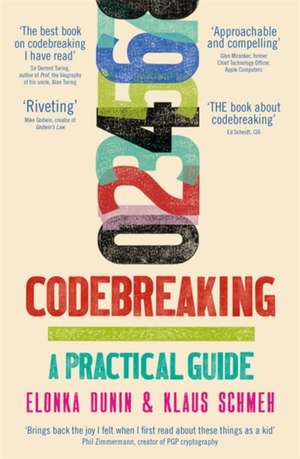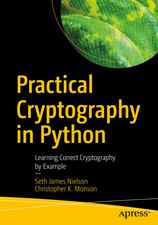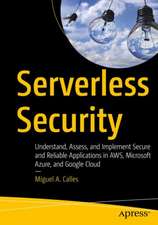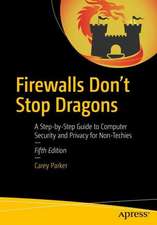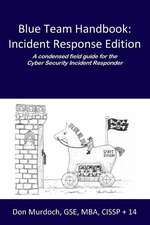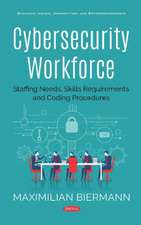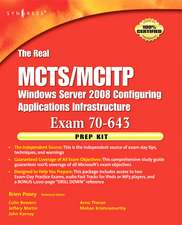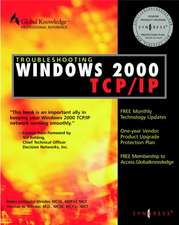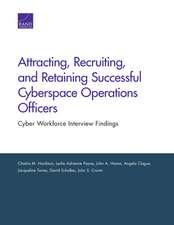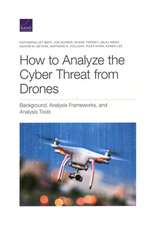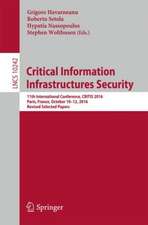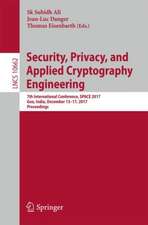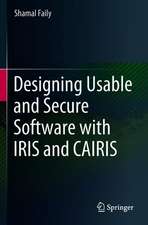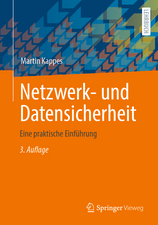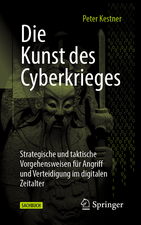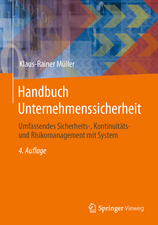Codebreaking: A Practical Guide
Autor Klaus Schmeh, Elonka Duninen Limba Engleză Paperback – 10 dec 2020
'The best book on codebreaking I have read', SIR DERMOT TURING
'Brings back the joy I felt when I first read about these things as a kid', PHIL ZIMMERMANN
'This is THE book about codebreaking. Very concise, very inclusive and easy to read', ED SCHEIDT
'Riveting', MIKE GODWIN
'Approachable and compelling', GLEN MIRANKER
This practical guide to breaking codes and solving cryptograms by two world experts, Elonka Dunin and Klaus Schmeh, describes the most common encryption techniques along with methods to detect and break them. It fills a gap left by outdated or very basic-level books.
This guide also covers many unsolved messages. The Zodiac Killer sent four encrypted messages to the police. One was solved; the other three were not.
Beatrix Potter's diary and the Voynich Manuscript were both encrypted - to date, only one of the two has been deciphered. The breaking of the so-called Zimmerman Telegram during the First World War changed the course of history. Several encrypted wartime military messages remain unsolved to this day.
Tens of thousands of other encrypted messages, ranging from simple notes created by children to encrypted postcards and diaries in people's attics, are known to exist. Breaking these cryptograms fascinates people all over the world, and often gives people insight into the lives of their ancestors. Geocachers, computer gamers and puzzle fans also require codebreaking skills.
This is a book both for the growing number of enthusiasts obsessed with real-world mysteries, and also fans of more challenging puzzle books. Many people are obsessed with trying to solve famous crypto mysteries, including members of the Kryptos community (led by Elonka Dunin) trying to solve a decades-old cryptogram on a sculpture at the centre of CIA Headquarters; readers of the novels of Dan Brown as well as Elonka Dunin's The Mammoth Book of Secret Code Puzzles (UK)/The Mammoth Book of Secret Codes and Cryptograms (US); historians who regularly encounter encrypted documents; perplexed family members who discover an encrypted postcard or diary in an ancestor's effects; law-enforcement agents who are confronted by encrypted messages, which also happens more often than might be supposed; members of the American Cryptogram Association (ACA); geocachers (many caches involve a crypto puzzle); puzzle fans; and computer gamers (many games feature encryption puzzles). The book's focus is very much on breaking pencil-and-paper, or manual, encryption methods.
Its focus is also largely on historical encryption. Although manual encryption has lost much of its importance due to computer technology, many people are still interested in deciphering messages of this kind.
| Toate formatele și edițiile | Preț | Express |
|---|---|---|
| Paperback (2) | 74.49 lei 3-5 săpt. | +42.26 lei 6-12 zile |
| Little Brown Book Group – 10 dec 2020 | 74.49 lei 3-5 săpt. | +42.26 lei 6-12 zile |
| NO STARCH PRESS – 19 sep 2023 | 155.72 lei 3-5 săpt. |
Preț: 74.49 lei
Preț vechi: 118.27 lei
-37% Nou
14.25€ • 14.91$ • 11.84£
Carte disponibilă
Livrare economică 13-27 martie
Livrare express 26 februarie-04 martie pentru 52.25 lei
Specificații
ISBN-10: 147214421X
Pagini: 528
Dimensiuni: 154 x 232 x 40 mm
Greutate: 0.63 kg
Editura: Little Brown Book Group
Notă biografică
Klaus Schmeh is the most-published cryptology author in the world. He has written 15 books (in German) about the subject, as well as over 200 articles, 25 scientific papers, and 1,500 blog posts. He is a member of the editorial board of the scientific magazine, Cryptologia. Schmeh's main fields of interest are codebreaking and the history of encryption. His blog Cipherbrain is read by crypto enthusiasts all over the world. Schmeh is a popular speaker, known for his entertaining presentation style involving self-drawn cartoons and LEGO® models.
Cuprins
Chapter 1: How can I break an encrypted message? And other introductory questions
Chapter 2: The Caesar cipher
Chapter 3: Simple substitution ciphers
Chapter 4: Simple substitution ciphers without spaces between words: Patristocrats
Chapter 5: Simple substitution ciphers in non-English languages
Chapter 6: Homophonic ciphers
Chapter 7: Codes and nomenclators
Chapter 8: Polyalphabetic ciphers
Chapter 9: Complete columnar transposition ciphers
Chapter 10: Incomplete columnar transposition ciphers
Chapter 11: Turning grille transposition ciphers
Chapter 12: Digraph substitution
Chapter 13: Abbreviation ciphers
Chapter 14: Dictionary codes and book ciphers
Chapter 15: Additional encryption methods
Chapter 16: Solving ciphers with hill climbing
Chapter 17: What next?
Appendix A: Kryptos
Appendix B: Useful language statistics
Appendix C: Glossary
Appendix D: Figure sources
References
